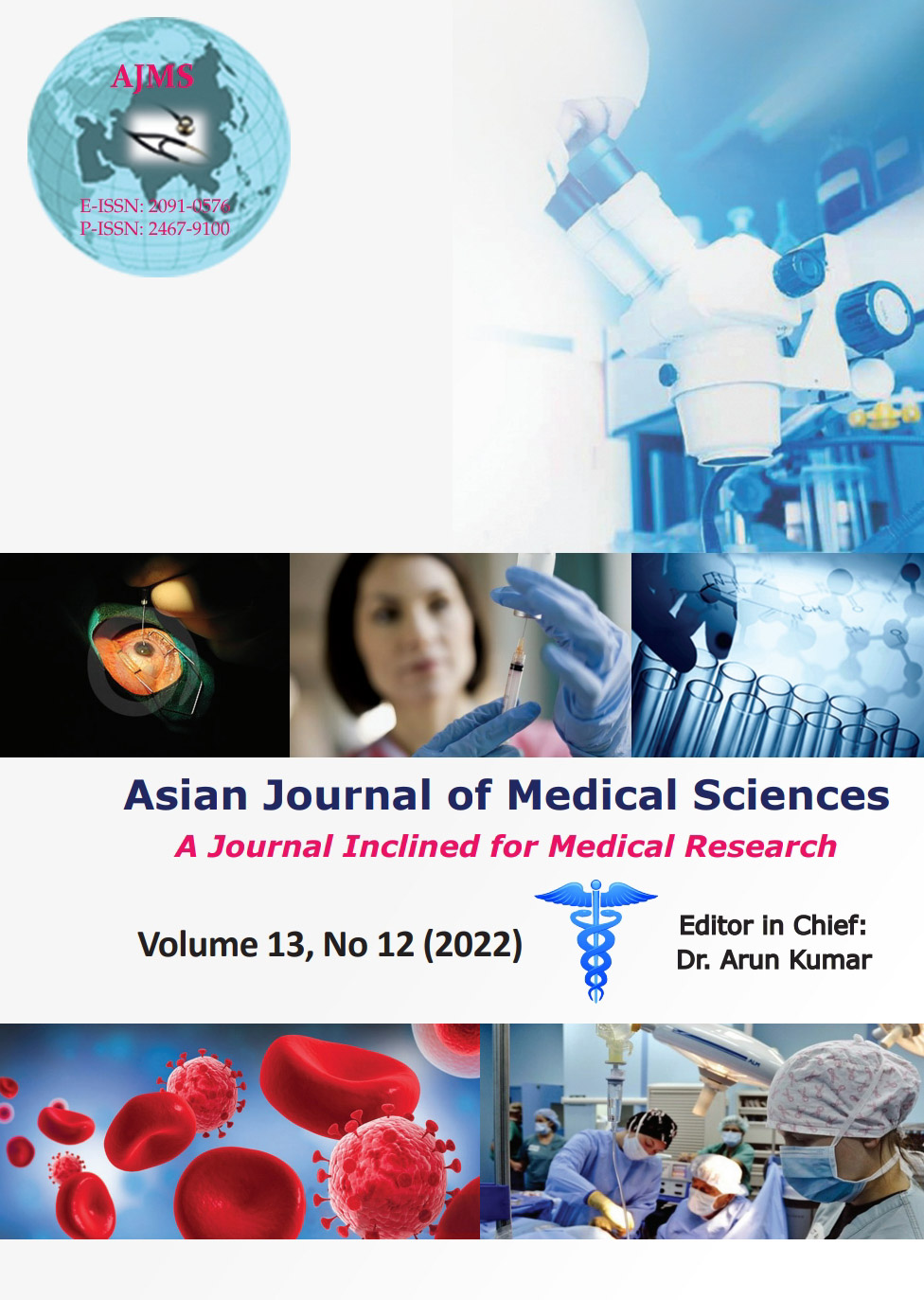To evaluate the efficacy and safety of intravenous ferrous carboxymaltose compared with Iron sucrose in treating iron deficiency anemia in postpartum period
Keywords:
Center for disease control, Ferric carboxymaltose, Hemoglobin, intravenous, Intravenous iron sucrose complex, Recombinant human erythropoietinAbstract
Background: Iron deficiency anemia continues to be a serious problem in developing countries resulting in spectrum of adverse events in pregnant women. The first choice for prophylaxis and treatment of mild IDA in pregnancy is oral iron therapy. However, in patients with moderate and severe anemia, oral therapy takes very long time and compliance could be a big issue in our country. Thus, pregnant women with moderate anemia should be better treated with parenteral iron therapy. Postpartum women were eligible for the study with hemoglobin level <10 g/dl, while those with sickle cell anemia, aplastic anemia, megaloblastic anemia, etc., or having allergy to parental iron were considered not eligible for this study. The eligible women were randomly categorized to receive intravenous iron sucrose and intravenous ferrous carboxymaltose.
Aims and Objectives: (1) To Compare ferrous carboxymaltose with iron sucrose in treating iron deficiency anemia in postpartum period (2) To assess the adverse effects and patient compliance.
Materials and Methods: A comparative, prospective, and randomized distributed in 50 patients within the Department of Obstetrics and Gynecology, MGM Medical College and Hospital, Navi Mumbai. The subjects were randomized into two group, first group receiving iron sucrose, whereas second group receiving ferrous carboxymaltose.
Results: Study, 25 women received iron sucrose and 25 women received ferrous carboxymaltose. There was significant higher increase in hemoglobin levels at 6 weeks in ferric carboxymaltose (FCM) group as compared iron sucrose group hemoglobin levels. There was significant higher increase in ferritin levels at 2 and 6 weeks in FCM group as compared iron sucrose group hemoglobin levels. There was significant higher increase in reticulocyte count at 6 week in FCM group as compared iron sucrose group reticulocyte count.
Conclusion: Ferric carboxymaltose is safe and efficient in treatment of iron deficiency anemia in postpartum women as compared to iron sucrose with lesser adverse effect and better patient compliance.
Downloads
Downloads
Published
How to Cite
Issue
Section
License
Copyright (c) 2022 Asian Journal of Medical Sciences

This work is licensed under a Creative Commons Attribution-NonCommercial 4.0 International License.
Authors who publish with this journal agree to the following terms:
- The journal holds copyright and publishes the work under a Creative Commons CC-BY-NC license that permits use, distribution and reprduction in any medium, provided the original work is properly cited and is not used for commercial purposes. The journal should be recognised as the original publisher of this work.
- Authors are able to enter into separate, additional contractual arrangements for the non-exclusive distribution of the journal's published version of the work (e.g., post it to an institutional repository or publish it in a book), with an acknowledgement of its initial publication in this journal.
- Authors are permitted and encouraged to post their work online (e.g., in institutional repositories or on their website) prior to and during the submission process, as it can lead to productive exchanges, as well as earlier and greater citation of published work (See The Effect of Open Access).




